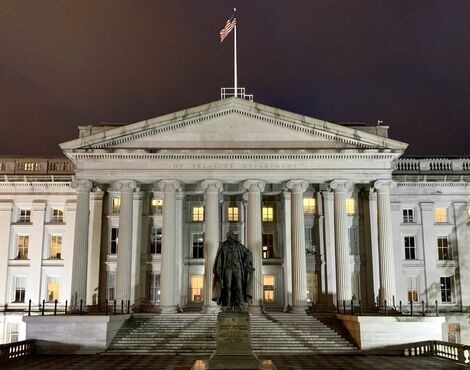
The old adage that the only certainties in life are death and taxes point out the centrality of paying the government “its due.” Simply stated, the lifeblood of any government is revenue, for without a steady stream of revenue the government would not be able to function. But while setting tax rates and collecting taxes is a fundamental requirement of any government and one of the primary responsibilities of citizens, the relationship between the American people and their government when taxes are the subject of national discourse has often led to contentious debates over who should pay and how much should be paid to the national treasury.
The question of who should pay the largest share of taxes is being asked with greater frequency these days by many Americans and the subject of political debates between political parties and ideological positions. Middle-class taxpayers complain about carrying an unfair burden of taxation at the expense of the wealthy and corporations. Those wealthy Americans and corporations often respond that they pay the largest share of the taxes paid to the government and that heightened taxation punishes wealth accumulation and restricts economic growth. At the present time, the issues of tax fairness, tax evasion and favoritism by Congress and the executive branch toward those Americans at the top of the income ladder are front and center of the political discussion of paying the government “its due.”
Currently, President Trump and the Republican controlled Congress have successfully passed what the President called his “Big Beautiful Bill” (BBB), which contains tax breaks for many Americans, but especially substantial tax cuts for major corporations and millionaires and billionaires. Supporters of the BBB claim that the tax cuts for business and the wealthy will stimulate economic growth through expanded investment, while critics point out that the legislation will only transfer money from the middle class to the rich and create further income inequality as the rich get richer while the working class get a few tax benefits that does little to improve their bottom line. For example, there are 902 billionaires in the United States, an all time high for the United States and the world, and 24.5 million millionaires, which is 40% of the world’s millionaires. Meanwhile, as many as 70% of Americans live paycheck to paycheck, meaning they have little to no money left for savings or emergencies after covering essential expenses.
Providing tax cuts whether to the super rich, corporations and the working class is often a popular political policy, but the BBB of the Trump administration has caused a major debate in the United States as the cuts are certain to create large scale budget deficits in the coming years along with substantial national debt increases that many economists view as posing a danger to the fiscal and monetary stability of the United States. The U.S. Congressional Budget Office reported that the budget deficit for the first 10 months of 2025 was $1.6 trillion, which is $109 billion more than was recorded during the same period in 2024. What is even more troubling is the impact of the yearly deficits on the national debt, which was $37 trillion as of August 2025 — that debt translates into $109,786 for every single person in the United States.
Those who criticize the BBB and the tax benefits provided to the wealthy and corporations claim the national debt is unsustainable and could lead to a recession or a period of stagflation (low growth and high inflation). To pay for the yearly deficits and national debt the Treasury Department borrows money by issuing Treasury securities which are held by individual investors and foreign governments. What is troubling to economists is that the government pays interest on the treasuries to the bond holders, which become part of the yearly federal budget thus creating a strain on the availability of funds for key government programs in defense, health care, transportation, veterans, agriculture and education and many other sectors of the budget including key programs such as Medicare and Medicaid.
It is important to remember that the policies to raise revenue are set by the Congress and the executive branch. Whether the Republicans or Democrats control the reins of government, party leaders and White House officials are pressured by lobbying groups from trade organizations, key campaign donors and public opinion influencers to develop tax laws and the process of collecting taxes that are beneficial to their supporters. At present the super-rich, the corporate CEOs and the conservative wing of the Republican Party have successfully pushed through a tax bill that benefits a fairly narrow segment of the American citizenry, even though public opinion polls show that the BBB is unpopular and middle class America does not see the benefits of the transfer of wealth to those at the top ring of the economic ladder.
But tax cuts that benefit the rich, yearly deficits in the trillions and a national debt that is astronomical are the law of the land and our national economy will be forced to adjust to the new tax policy. Fashioning tax policy, however, is not set in stone as new leaders, new interest groups and new public opinion data may force changes in who benefits from tax laws. What Americans pay the government and receive in a new level of taxation has changed, but the question of fairness and distribution of wealth will remain. If you are not happy with the new Trump-based tax policy, just be patient (if you can) and wait until a new group of tax writers come into power.